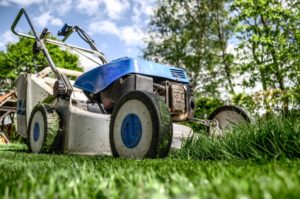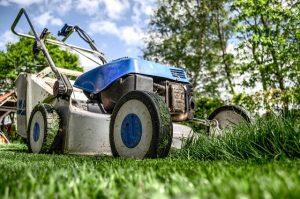Guest Post – How to Make Your Garden Even Greener

If you’re growing your own garden chances are you love nature and don’t wish to harm it. But can you always be absolutely sure your lush green garden is truly “green”? Whether it’s just a lawn, flowers or veggies that you’re growing, you’ll probably want to keep your green fingers clean from the “crime” of polluting the nature so you might want to pay attention to efficient water usage, air and water quality protection, as well as choice of fertilizers and sustainable and responsible use of resources.
Believe me, it’s really easy, affordable and incredibly beneficial, first of all for you and your family, not to mention the greater impact it can have on the environment, but also on your neighbors who might want to follow your example and thus increase the overall positive effect even more. So here are some suggestions how to do it.
Get Rid of Chemical Fertilizers and Pesticides
It’s understandable you want your garden to thrive and will do all it takes, but next time you reach for that store-bought fertilizer, think how much long-term damage it can make, and compare it to the seeming benefit it is believed to have. It sure will make your plants grow but it can also cause serious water and air pollution. What’s more, if it’s veggies that you’re growing, and for your own use, why would you chemically treat them when you actually have the opportunity to eat 100% organic food some people pay top dollar for.
Instead, turn to natural compost which is incredibly simple to get. Use your organic food waste to make it. Leave it in a tightly sealed compost bin and in one month you’re ready to go. It’s said to be even more efficient than the chemical fertilizers and absorbs much more water, so you’ll also use your water more efficiently. If you really need a fertilizer urgently, you can turn to earthworms for help, they’ve been known to speed up the process.
Once you’ve put so much effort in growing your beloved plants, you’ll definitely want to protect them from insects and other pests. However, just like chemical fertilizers, pesticides can harm the environment, especially water supplies.
So instead turn to natural options. First of all, try seeding the plants which are natural insect repellents, such as marigolds, chrysanthemums, lemon grass, or basil, garlic and mint. Also, try attracting birds and bats into your garden as they are natural insect predators. And finally, you might want to invite bees and butterflies to join as they spread the pollen and help your garden grow.
Of course, always weigh your options, but make sure you opt for “green” whenever it’s possible.
Be Careful with Water
Water waste should be avoided for quite obvious reasons and it’s actually not so difficult to do it. As already mentioned, using compost will increase the efficiency of the water usage as it absorbs much more than chemical fertilizers. Also, you can use compost or mulch and spread it around your garden to prevent the water from running off. Watering early in the morning is another wise move as you’ll avoid wasting water through evaporation.
You could also turn to alternative water sources and the easiest way is to put rain barrels in your yard. In this simple and inexpensive way, you’ll reduce your water bill and overall water usage. You’ll also reduce the storm water runoff which will in return reduce land erosions and landslides.
Turn to Local Plants
Instead of growing some exotic off-the-season plants which require so much effort and toiling, opt for the native species which will thrive without asking for too much from you. They’re well-adapted to the local amounts of insolation and rain so you’ll save water and fertilizers. They’re also innately resistant to local pests and predators, so you’ll be able to forget about pesticides. Indigenous plants can save the environment, as well as your time and effort.
Electricity
And as a final touch, you can go completely green by using solar lamps for your garden. These devices are completely independent of the electrical grid, so once you set them up, they will cost you nothing and will create no additional pollution by using electricity from the electrical grid.






